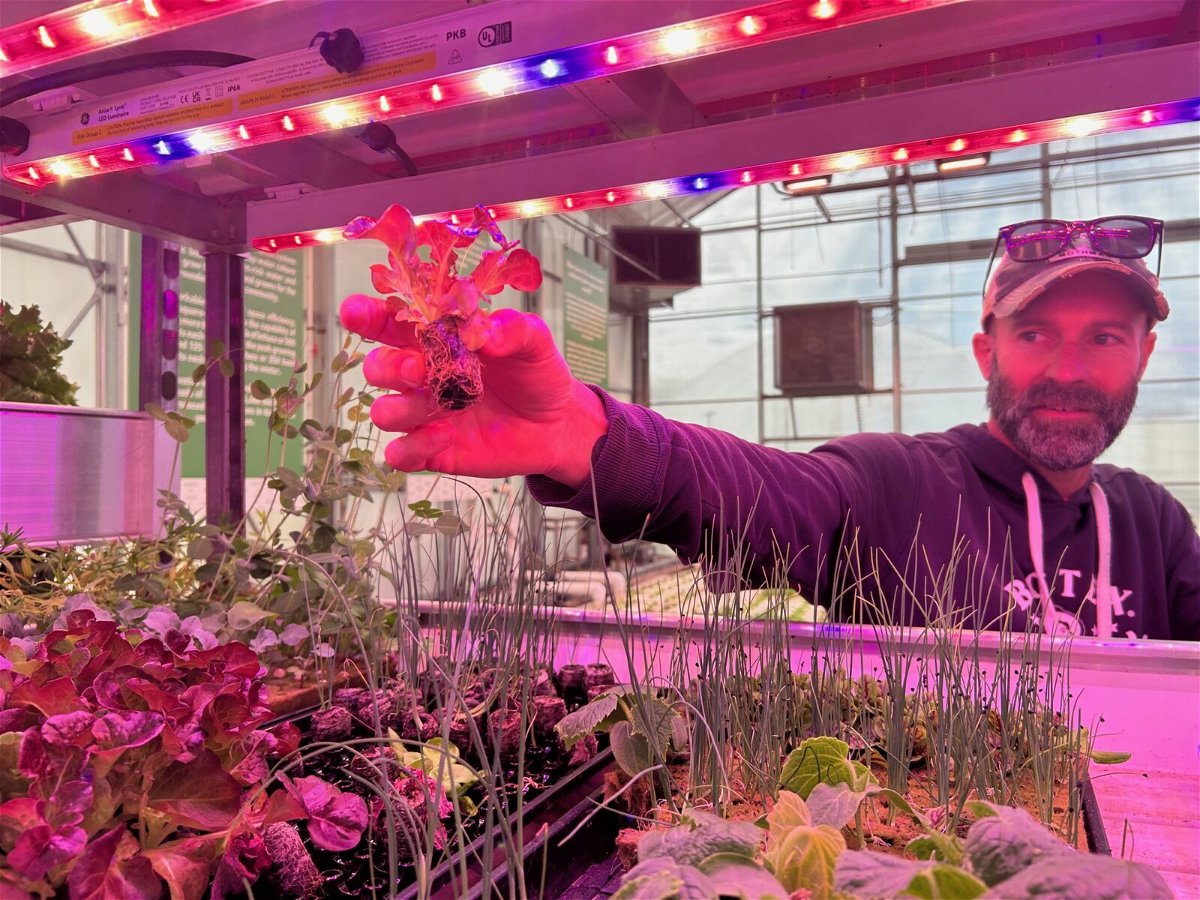
In South Dallas, where grocery stores are scarce and food apartheid is a reality, the City of Dallas and other funders have invested hundreds of thousands of dollars in community gardens. These gardens demonstrate the benefits of locally-grown produce, but it’s unclear what impact they have on food access in South Dallas.
We reached out to a dozen projects around South Dallas, to talk with gardeners and farmers about the highs and lows of urban agriculture efforts across neighborhoods. We focused on sites marked by the city’s Urban Agriculture and Community Health Explorer.
Of these, three sites are no longer active: Nella Roots Gardening, Unity Community Gardens and the Wyatt-Shockley Community Garden. Three more gardens — TR Hoover, Dallas Masjid, Cornerstone Baptist Church and the Community Garden on Peabody — were unable to be reached for this story.
Unity Community had been operating at a vacant residential lot in the Mill City neighborhood, not owned by organizers, until a builder began constructing a home on the site in December 2022. Wyatt-Shockley owned their land but lacked the time and resources needed to navigate the zoning and permitting they needed to set up city utilities, water being the most important.
The active projects in the 75210, 75215, and 75223 zip codes range from cutting-edge technology with high production to early childhood education environments, which work to provide produce along with learning opportunities for South Dallas children.
Sunny South Community Garden
This project, run by Sharon Steele, is sponsored by the Texas State Federation of Garden Clubs, of which Steele is president. She started the project in 2014, but during the height of the COVID-19 pandemic, the garden and TSFGC were dormant. Now, Steele is working to reestablish the organization and the garden based out of a home at 2522 Al Lipscomb in Park Row.
“My goal is to truly make it a full-fledged community garden, where all neighborhoods around us will buy into the garden, so they can have healthy food and learn more about a garden coming up,” Steele says.
Steele says in the past they’ve relied on volunteers, which can be inconsistent. Currently, she’s looking into funding opportunities for a small paid staff, to restart production and better establish the garden as part of the neighborhood.
As her project takes “baby steps,” Steele says she has been inspired by other South Dallas gardeners and wants to encourage young people to pursue farming.
“The kids, I think, would benefit greatly from this,” Steele says. “Maybe they’ll want to major in agriculture, to grow food or go into landscaping or irrigation, to learn how to do these things. I tell people, ‘There’s money in dirt.’ Unfortunately, too many people don’t believe it.”
Seeds of Faith Collective
This project, located at the Greater Garth Chapel on Carpenter Avenue, is one of Candace Thompson’s long list of community advocacy efforts. Thompson started the garden with her fellow church goers three years ago, collaborating with Northway Christian Church and the Warren Avenue Christian Church.
In 2021, the garden produced more than 300 pounds of produce. Thompson acknowledges, however, that community-based agriculture is only one part of a larger food solution for South Dallas.
“Urban gardens are providing the immediate access points as a potential solution, not the final answer,” Thompson says. “Urban gardens are helping to, hopefully, rebuild relationships with the land and foster new ways of engaging the community.”
In March 2023, the project entered a new phase as the garden partnered with the Texas branch of the United States Department of Agriculture’s Natural Resources Conservation Service and Grow North Texas to establish itself as a “People’s Garden,” one of hundreds across the U.S.
Through this program, Thompson’s project is highlighted on the nationwide People’s Garden map, receives signage, and allows gardeners to attend virtual classes and connect directly with other organizers across the country.
Even with nationwide recognition under her belt, Thompson’s focus remains local, as she looks to build programming and a sustainable framework for the garden, so it can produce efficiently in the future. Like other South Dallas growers, she says finding the consistent help needed to produce is challenging.
“You’ve got to be able to count on other people to be in it with you; it’s called a ‘community garden’ for a reason,” Thompson says. “As much as you or other people want to help, they also have other priorities they have to navigate as well.”
Dolphin Heights Community Garden
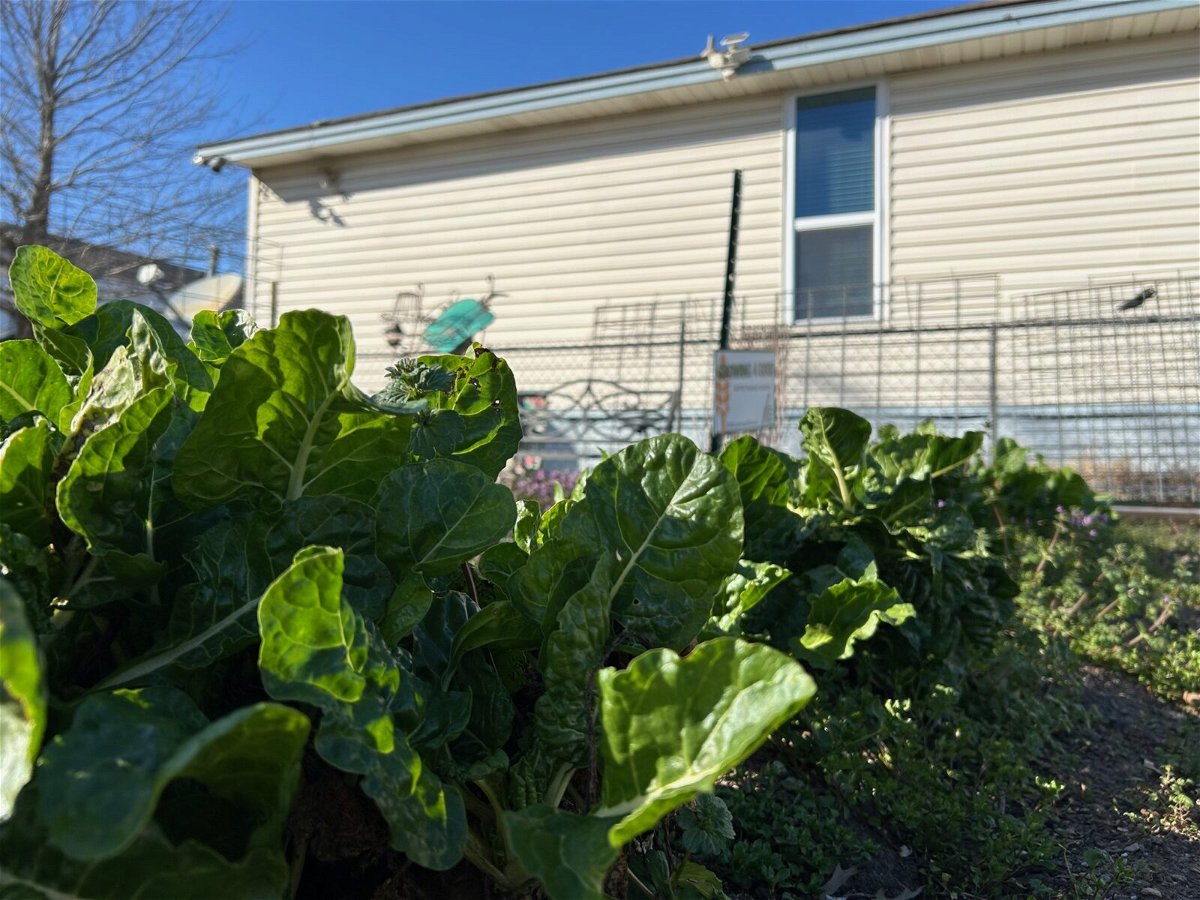
Anna Hill’s late husband established the Dolphin Heights Community Garden well over a decade ago in a lot next to their home. Hill is now 83 and struggled in recent years to keep up with maintenance and volunteer recruitment, but in October 2023 she welcomed her first “gardener-in-residence,” Katie Roberson, who lives in a tiny house on the property constructed by [bc] workshop in exchange for tending to the garden’s vegetables and herbs.
With Roberson, Hill has more consistent help with efforts to provide fresh produce to her neighbors, in addition to coordinating seasonal volunteer groups. Roberson is a landscape architect and also has worked with Hill to create plans for the garden’s future, to be shared with the community soon.
“I’m hopeful — we have a good plan,” Hill says. “I said to myself at first, ‘Why do we need a plan? We need to pull weeds!’”
Over the years, Hill has worked with Alendra Lyons in neighboring Mill City, offering her expertise with chicken-rearing and early childhood education, as Dolphin Heights hosted a preschool program prior to Dallas ISD’s establishment of a city-wide preschool options.
She also collaborates with gardeners in East Dallas, Pleasant Grove to trade tips and produce, and donates produce to the North Texas Food Bank and to South Dallas nonprofit Empowering the Masses.
Despite the difficulty securing regular help, Hill still was able to produce about 100 pounds of produce in 2023, and is hopeful for a better 2024 yield with Roberson and the community’s help.
Though these donations certainly benefit individuals, Hill says neighbors can only reap the benefits of a community garden by putting in consistent time and effort.
“To me, what a community garden really is benefits people, if they come and get it,” Hill says.
Mill City Community Garden & Teaching Site
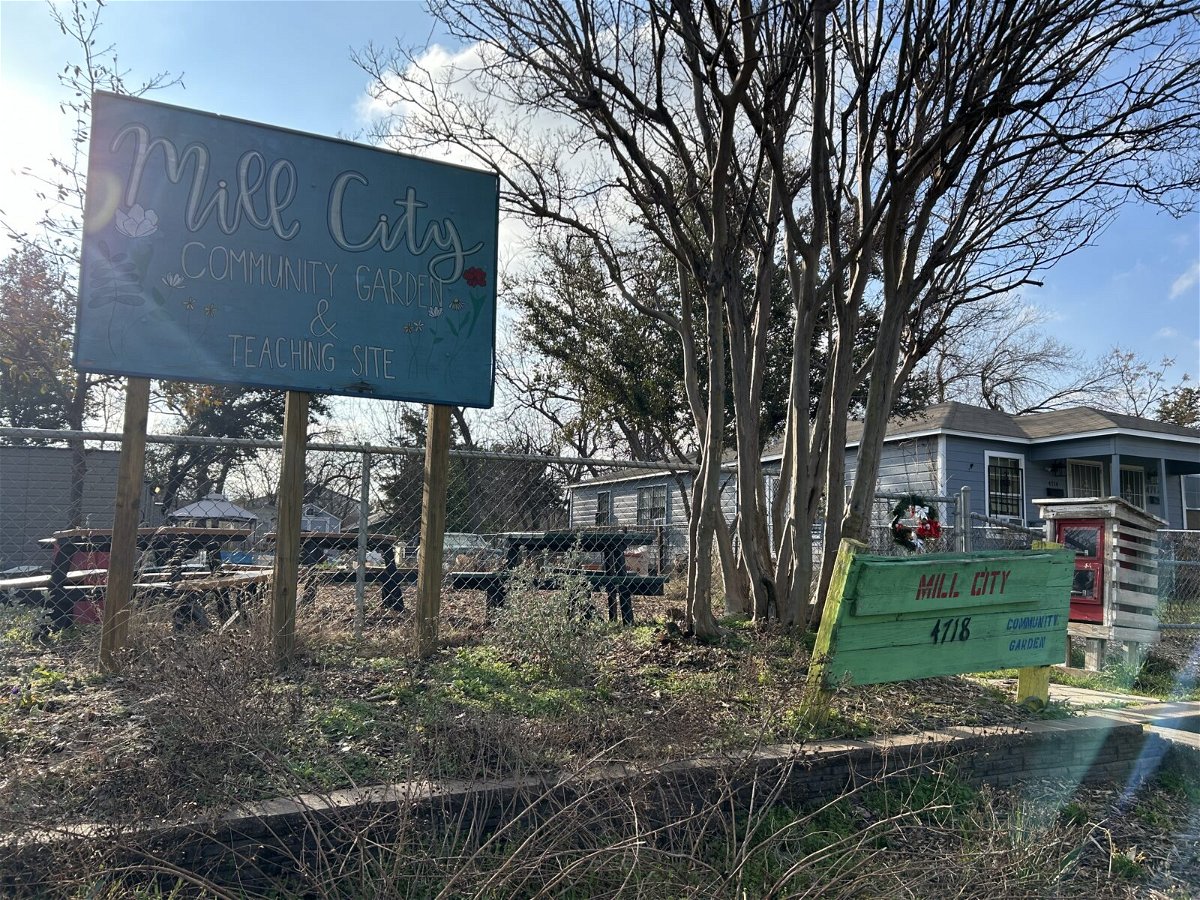
Just a few streets over, Alendra Lyons is nurturing a slightly different project. At the Mill City Community Garden, Lyons combines her love of gardening with her passion for working with children to create an outdoor learning environment.
“I came out of the classroom to work full-time here in the community,” Lyons says. “It’s about education for me, creating space for the kids … It’s not so much about production; it’s a teaching garden.”
While Lyons and her family have maintained a garden at their family home for 73 years, the garden’s current form was established about 10 years ago. Her wide variety of produce, flowers, chickens and outdoor cats with young people of South Dallas, and showing them how they can contribute to others around them, no matter where they go.
“If you live in a community, you are that community,” Lyons says. “It’s not the houses, it’s not the trees, it’s you. So what are you going to do to take care of your community?”
In coming years, Lyons hopes to expand her efforts into a full preschool, surrounded by outdoor crops, climate-controlled hydroponics, vertical gardening and even more chickens.
Big Tex Urban Farms at Fair Park
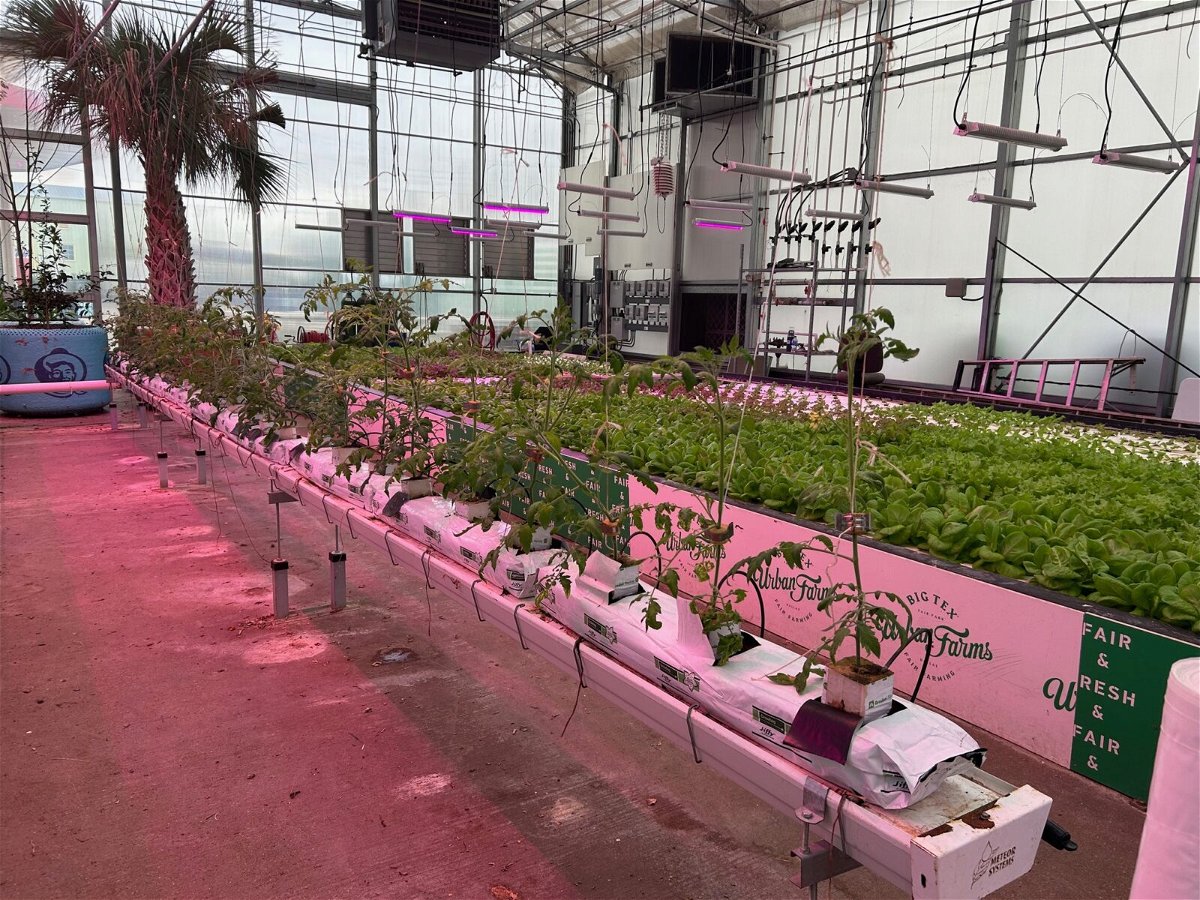
As the name suggests, Big Tex Urban Farms is a program under the umbrella of the nonprofit State Fair of Texas. Even outside of the fair season, Drew Demler and his team work just steps away from the ferris wheel in a large greenhouse.
In the greenhouse are lettuce, tomatoes, herbs and a range of other crops, all with one thing in common: hydroponics. A range of contraptions, from Dutch buckets to NFTs, or nutrient film techniques, serve these crops.
Big Tex Urban Farms launched in 2017 and now serves several purposes: agricultural education, community engagement and local food production. Its initial effort was an outdoor fair exhibition, with just 100 outdoor planter boxes. The farm moved into its current indoor space in 2018 and that year grew more than 2,500 pounds of varying produce, all of which was distributed to the Fair Park community through the Juanita Craft Center, Cornerstone Baptist Church and other local organizations.
Since then Big Tex started a research partnership with Texas A&M’s Agrilife Research Center in North Dallas, hosted agricultural industry leaders and researchers from around the world, and in 2023 donated 30,000 pounds of produce.
But even this much produce isn’t a solution to South Dallas’ food desert status, Demler says, emphasizing that there isn’t a singular solution.
“The produce donations are, more or less, a conversation starter,” Demler says. “I want people to get excited about eating a salad, and part of that is delivering something beautiful, like you’d get at Central Market, but you can go to our different partners and get it for free.”
Demler says maintaining an outdoor garden is challenging anywhere in Texas, but Big Tex is able to have more consistency indoors, which allows them to support a variety of community gardens and urban agriculture projects in the area, giving local growers learning opportunities and resources they may need to develop their farms.
In addition to a tough Texas climate, Demler says community gardens face an added layer of difficulty when it comes to finding consistent volunteers. Even so, he says he believes they are beneficial for communities.
“The outdoor projects are able to get people physical activity and mental health breaks,” Demler says. “Getting back to nature and horticultural therapy, I think those are less tangible benefits that are the true value of those types of projects.”
Restorative Farms: Grozilla, Hatcher Station, Seedling Farm
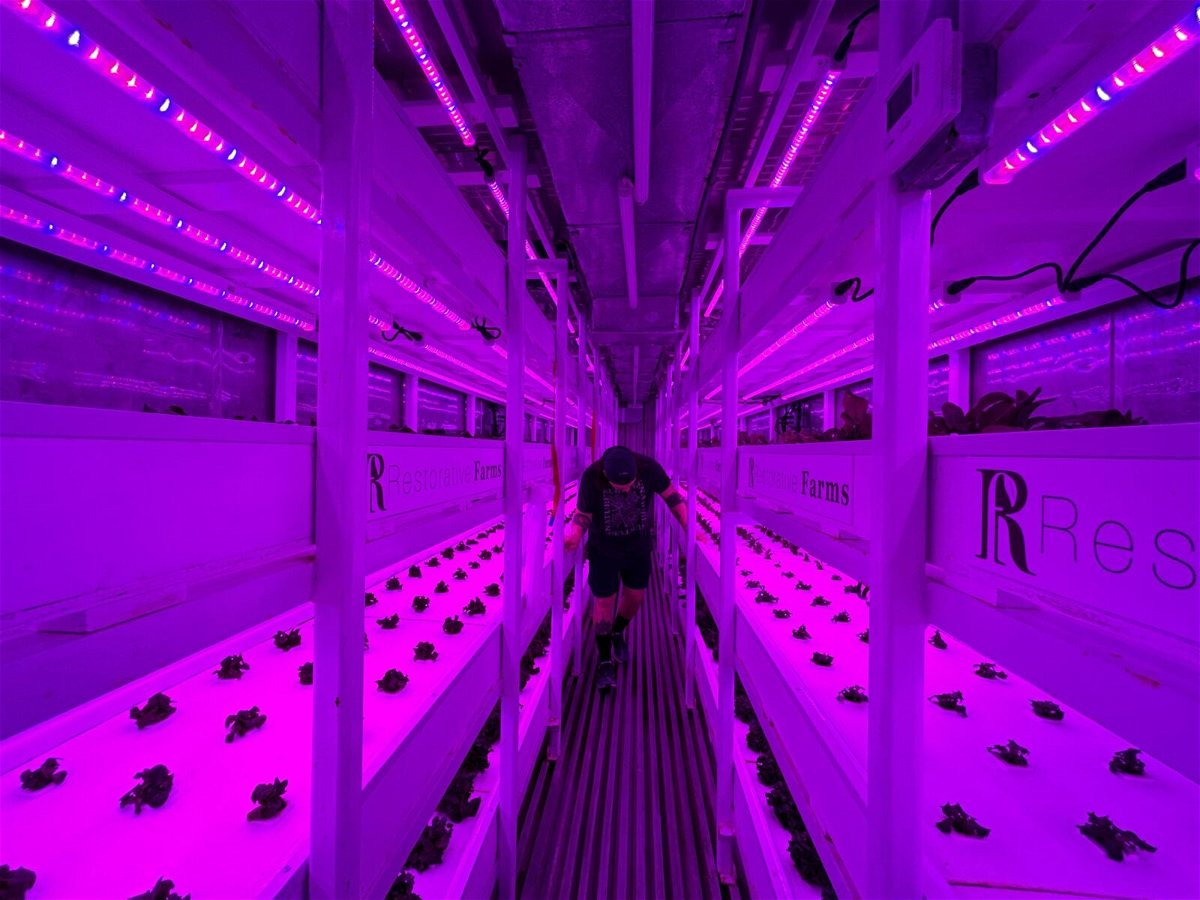
Restorative Farms takes a different approach to gardening and food security in South Dallas. Its niche is employing part-time farmers — previously incarcerated people — to provide job training and opportunities in the agricultural industry.
In South Dallas, Restorative Farms has three bases: a one-acre farm at DART’s Hatcher Station, a seedling farm at the MLK Jr. Community Center, and “Grozilla,” a joint venture with Big Tex Urban Farms. These sites are managed by five part-time farmers, all from South Dallas, plus another part-time employee who oversees scheduling, as well as volunteers and interns from inside and outside the community.
Restorative first started when co-founder Owen Lynch, an SMU professor, led a participatory research project in South Dallas, and heard that community members wanted support in creating urban agriculture. Alongside entrepreneur Brad Boa, South Dallas native Tyrone Day and SMU professor Doric Earle, Lynch started with the MLK seedling farm in 2017.
Grozilla, two repurposed shipping containers just under the ferris wheel at Fair Park, is a climate-controlled farm, producing a variety of greens in 28 days, from seed to harvest. Because of its high-tech hydroponic system, more than 300 heads of greens are harvested from it every week.
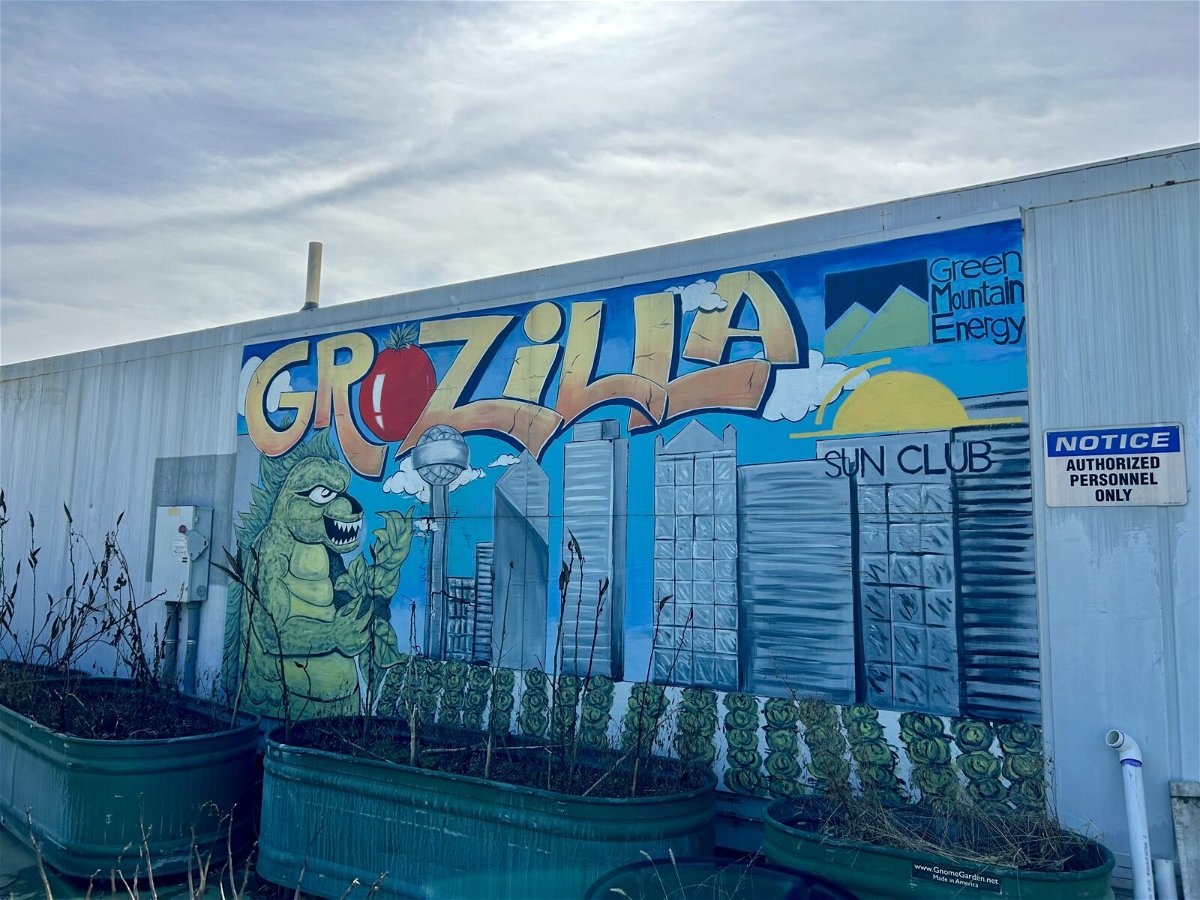
Co-founder Brad Boa began his work in South Dallas 10 years ago with Miles of Freedom, a nonprofit that helps individuals and families make the transition from prison back into their communities. Boa said by working alongside Miles of Freedom founder Richard Miles, he realized his entrepreneurial knowledge could help non-profit leadership.
“I believe in buying low, selling high, being very efficient, maximizing your investment, and expecting some sort of return on that investment,” Boa says. “And for me, a return on investment is not just money. It’s time and energy and effort and motivation.”
Across their sites, Restorative uses a wide variety of growing methods with the goal of preparing farmers for the challenges that climate change will bring to food production. Their team uses traditional outdoor farming, hydroponics and climate-controlled agriculture, among other techniques, to stay ahead of the curve.
This year, the seedling farm expects to grow and sell or donate about 80,000 seedlings, their biggest annual yield yet. Since the start of this project in 2019, they’ve distributed about 105,000 seedlings to South Dallas growers such as Temple Shalom, Cornerstone Church and the Austin Street Center.
Weekly, the farms also distribute packages of local, fresh food from their facilities and from partners called their “community supported agriculture” bundles, or CSA. A typical CSA contains about 12 items, a mix of vegetables, eggs and herbs, sometimes including a small potted plant or a small food item from a South Dallas business.
These packages are a for-sale product, with a retail value between $64 and $78, but neighbors only pay $10 a week. Since 2021, Boa says they’ve delivered more than 10,000 of these bundles, 81% of which go to neighbors in South and West Dallas, counting both sales and donations.
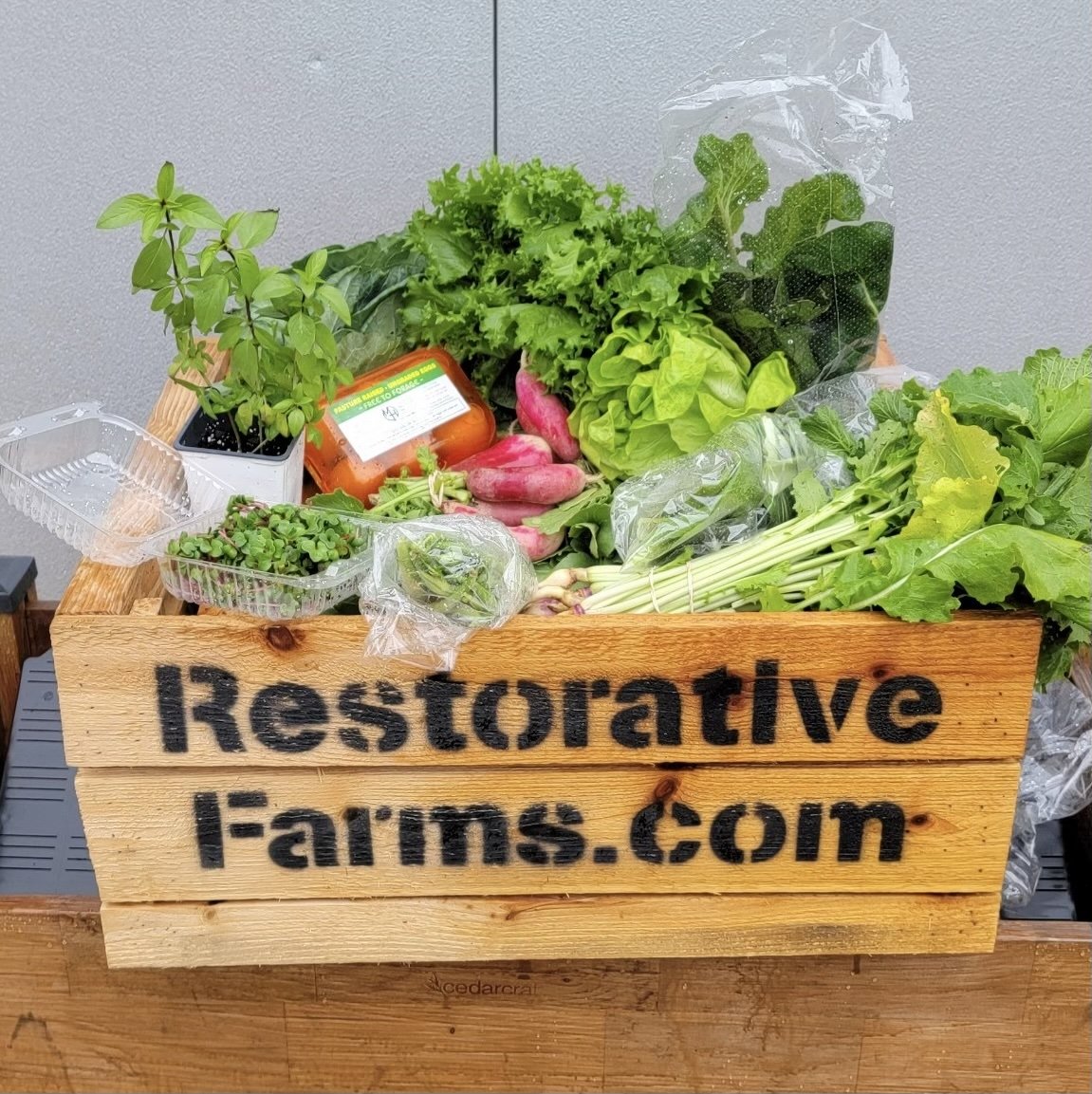
To Boa, seeing farmers build their skills and expertise is one of the best “return on investments,” because it provides hope and confidence for members of the community, he says. He gave an example from their recent “food as medicine” event, where healthcare professionals met with growers to discuss the benefits of locally-grown produce.
“It’s amazing to see these people who worked for us in the field, being asked questions by doctors,” Boa says. “And they’re realizing that they weren’t just field workers; they were farmers, in a truer sense, and they’re the experts.”

Leave a Reply